Margot Robbie is a force of change in Hollywood
Her production company may be called LuckyChap, but the Aussie-grown superstar owes her success to talent, drive and a passion for making empowering, female-led films.
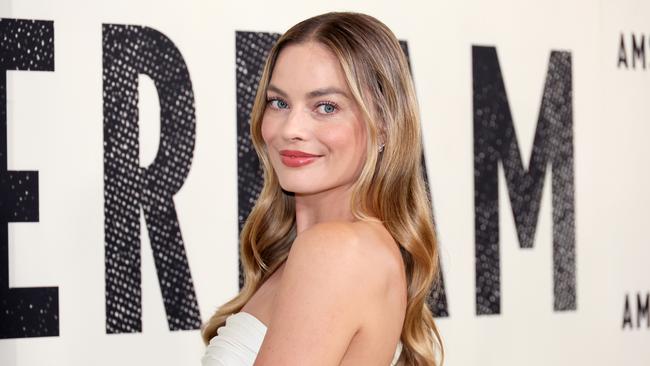
‘The hottest blonde ever.” This was the infamous script description given for Margot Robbie’s character in The Wolf of Wall Street (2013), directed by Martin Scorsese. Widely credited as Robbie’s breakthrough, the role instantly helped establish her as one of the biggest movie stars.
Yet Robbie – Australian born and then still relatively new to Hollywood – says that she had little interest in further riffing on the blonde-bombshell theme: “I was going to have to show people that I could do something different. I didn’t want to get pigeonholed.”
Accordingly, her next roles gave the middle finger to the hot-blonde paradigm.
On Suite Francaise’s set, in 2013, “I play a French peasant, and trust me, I looked revolting,” she says via Zoom. (Her screen name reads “Maggot”, her childhood nickname, rather than “Margot”.)
“Then I did Z for Zachariah … and again, I looked revolting. By that time, I thought, I’ve shown people.”
As the smallpox-riddled Queen Elizabeth in 2018’s Mary Queen of Scots, Robbie was adorned with oozing sores, scabs and scars.
While filming Suite Francaise, Robbie made friends with assistant directors Josey McNamara and Tom Ackerley. Both became her business partners, along with her childhood friend Sophia Kerr; she later married Ackerley. The four discussed their mutual producing aspirations, and about what they saw as a lack of desirable film roles for women.
“I remember saying, ‘Every time I pick up a script, I want to play the guy’,” Robbie recalls. “‘Wouldn’t it be so cool if people pick up scripts that we’re making and always wanted to play the female role?’”
They decided to found their own production company, calling it LuckyChap Entertainment. Robbie had just turned 24. (The company name was conjured while they were drunk, says Robbie; it may refer to Charlie Chaplin, but no one can really remember.) The LuckyChap mandate, from day one, was to “make female stories”. Each of its projects had to involve a female story or female storyteller. They also, says Ackerley, “wanted to find the next generation of talent” while being “on the right side of culture”.
Getting any movie made is difficult, but Robbie, now 32, says that the LuckyChap team wasn’t daunted. “(We were) too young and dumb to know how scary (it would) be,” she says. “Starting it all off on a kitchen bench in London, everyone was like: ‘They’re such idiots … it would be a miracle if they did anything’.” But the team promptly manifested just such a miracle, in the form of a spec script by screenwriter Steven Rogers that had been making the rounds: a daring redemption film about former Olympic ice-skater Tonya Harding. Others in the industry dismissed the project, Robbie recalls. “They (were) like, ‘You can’t make that … You’ve got 200-something scenes, several locations, it’s period’,” says Robbie.
“We read it and were like, ‘But it’s just f..king great; it’s the best script ever, so who cares?’” They snatched up the option.
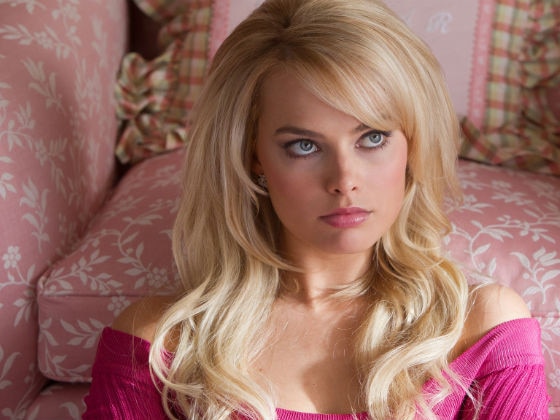
When playing Queen Elizabeth, Robbie says that she felt “very restrained, both emotionally and physically”. But with I, Tonya, in which she played the title role, she came out guns blazing and made her true breakthrough. Through the unlikely avatar of Harding, she broadcast the qualities that have since defined a quintessential Robbie role: extreme physicality, an overt defiance of cliche and a willingness to subsume herself entirely in a character.
I, Tonya also served as a declaration of intent for LuckyChap. The young team had just released a film that would be nominated for three Oscars in 2018, including a best performance by an actress in a leading role nomination for Robbie and a win for her co-star Allison Janney. The company and Robbie had certain things in common: their sensibilities were unconventional, even wild. Both courted risk. And both saw infinite value and opportunity in what others had dismissed.
Eight years old, LuckyChap – now based in Los Angeles – has sprawled from a scrappy upstart into an independent juggernaut. The company has about 15 to 20 film projects in various stages of development, according to LuckyChap vice-president of film, Bronte Payne. I, Tonya, Birds of Prey (2020) and Promising Young Woman (2020) have together grossed more than $US275m worldwide, the company says.
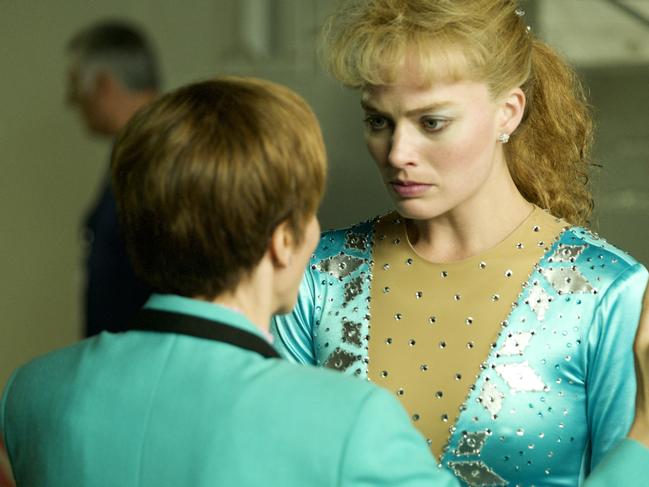
LuckyChap has also branched out into streaming and television series, with a first-look deal with Amazon Studios. It also has around 15 to 20 series in development, says Dani Gorin, the company’s president of TV. In both the film and series operations, the company has held fast to its original mandate of nurturing women creators and telling female stories. Gorin cites the 2021 LuckyChap series Maid – created for Netflix and starring Margaret Qualley as a single mother and domestic employee fighting to survive – as “representative of the types of stories we want to be telling, (with a) female creator, female protagonist”.
“(It’s) a really straight, simple story of someone struggling in a system not built for them,” she adds. “There’s a subversive quality … which had this dark theme of comedy strangely inside of it, and also this thread of magical realism.”
The company’s current slate of projects widely varies in content and tenor. What the company looks for, according to its principals, is material that is left of centre. Fresh. Experimental. Yet commercial, they are quick to clarify. Of the projects pitched to them, only “1 per cent are the ‘f..k-yeses’,” says Robbie. LuckyChap co-founder and co-principal Josey McNamara adds, “I wouldn’t say (the rest) are ‘hell nos’ – a lot of times … it’s not right for us.”
Robbie says that the #MeToo movement has brought even more momentum to the company’s longstanding mission: “The knock-on effect of that was that a slipstream was created for female creatives. I can see quite a few of us riding that slipstream, and I would encourage all female creatives to ride in it.”
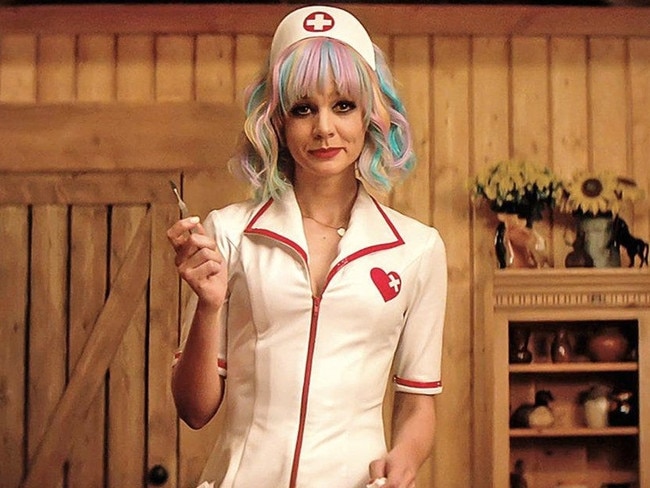
Among the talent fostered by the LuckyChap team is filmmaker and writer Emerald Fennell, whose 2020 film Promising Young Woman won her an Oscar, a BAFTA award and a WGA Award, all for best original screenplay. Fennell has become something of an in-house director and proof of concept for LuckyChap, which is also producing her second film, Saltburn, currently in post-production.
Fennell says that the company has nurtured and defended her work.
“They’re not pandering to Hollywood or anyone else,” she says. “They stand behind you and don’t care if it gets them into trouble.” From the beginning of her working relationship with LuckyChap, “They never made me feel like a little girl. They believed in me and helped me,” Fennell says. “I felt safe with them.” And in Hollywood, she says, “it’s no small thing”.
Writer and director Greta Gerwig – who co-wrote and is directing the upcoming LuckyChap project Barbie – also describes Robbie and LuckyChap as champions of the female talent with whom they work.
“Once they back a project, they back it all the way,” she says. As both an actor and producer, “Margot has a flash of certainty and then runs at it”, Gerwig says. “She doesn’t have a waffling aspect to her psyche.”
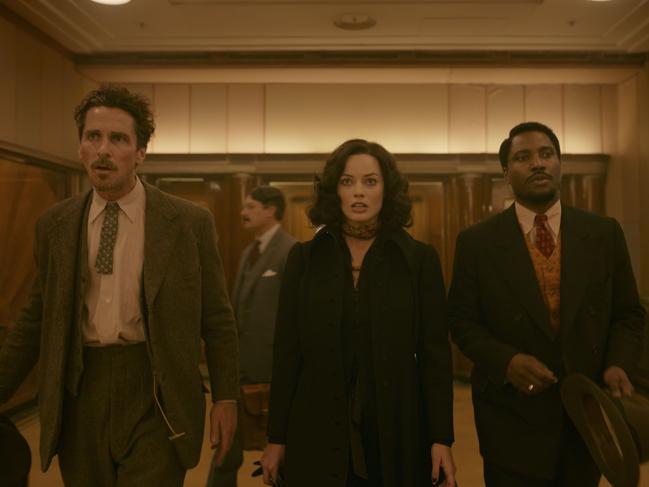
Robbie and her colleagues are part of a wave of film and TV leaders helping women commandeer top creative roles and tell women’s stories on-screen. Actor and director Eva Longoria founded UnbeliEVAble Entertainment, dedicated to telling scripted and unscripted Latino stories. Writer and director Ava DuVernay founded Array, a collective that produces content that aims to “tell inclusive and entertaining stories that will … (amplify) people of colour and women of all kinds across all narrative formats”. Hello Sunshine – a media company created by producer and Oscar-winning actor Reese Witherspoon – “puts women at the centre of every story we create, celebrate and discover”. (Witherspoon sold the company in 2021 for a reported $US900m to a new company backed by private equity firm Blackstone.)
Producer, writer and showrunner Shonda Rhimes’s company, Shondaland, partnered in 2019 with SeriesFest to launch the Women Directing Mentorship, a competition designed to discover aspiring female directors.
It’s an increasingly crowded playing field. While sometimes LuckyChap must compete for projects with other companies with similar mandates, “it doesn’t feel like unhealthy competition”, says Robbie. “I’d be thrilled for even more female-led and female-driven companies to start. The more the merrier.”
In the earliest years in the film industry, women regularly worked as directors and producers. In the early 20th century, director Alice Guy Blache ran her own studio, Solax, and produced up to three films a week; Dorothy Arzner directed nearly 20 films between 1927 and 1943. However, once motion pictures showed signs of becoming lucrative as mass entertainment, Wall Street took notice; the studio system emerged and quickly locked down the industry. Female directors and producers were largely exiled.
“Hollywood was an open space at the time and a new industry,” says Stacy Smith, associate professor of communication at the University of Southern California and founder of the school’s Annenberg Inclusion Initiative. “(But) when money comes in, marginalised communities are pushed out … that’s a common theme that runs all the way to present day.”
The Wall Street Journal

To join the conversation, please log in. Don't have an account? Register
Join the conversation, you are commenting as Logout